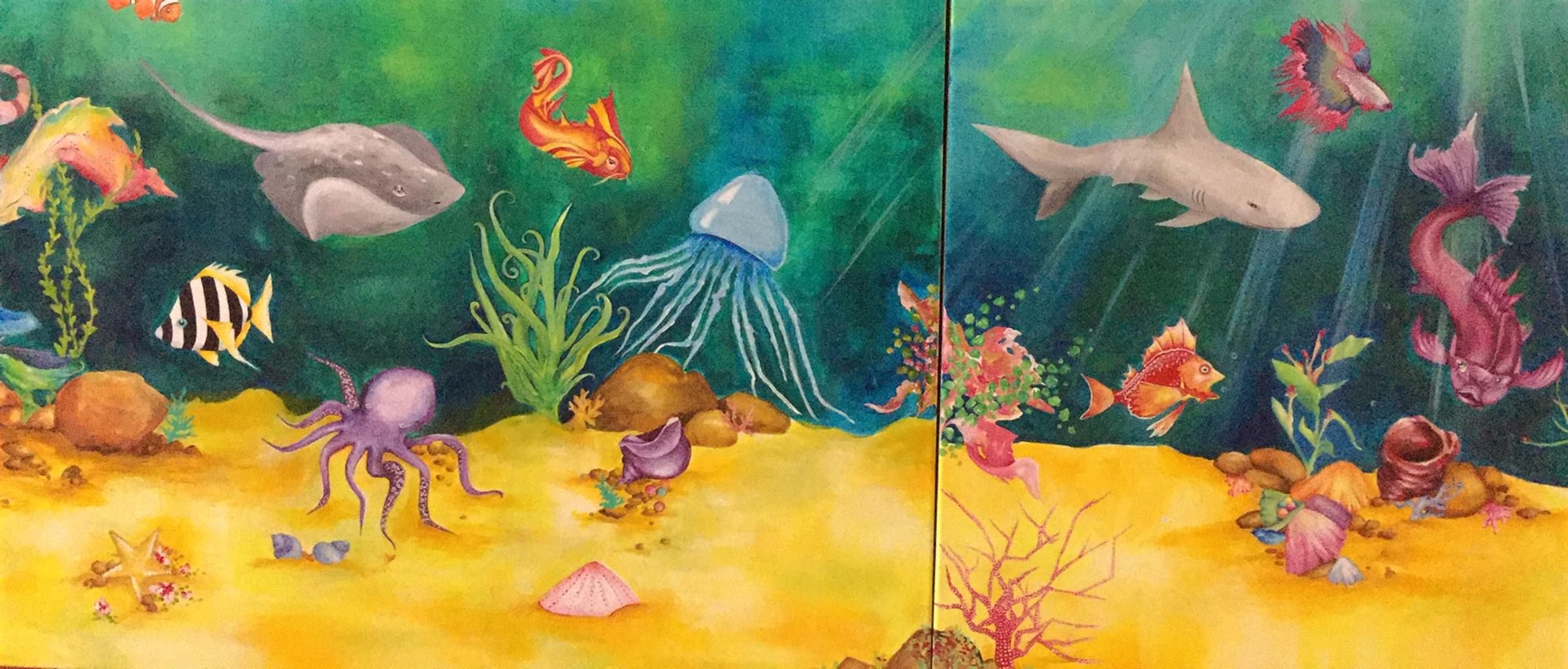From the Principal

Building Update
Solar Panel upgrade – the solar panel installation has been completed and will be operational soon, the system needs to be connected to the grid by the power company. The system would be capable of supplying electricity to 25 homes, so am sure that based on the hours of school operation we will be able to put a lot of power back into the grid, as well as being self sufficient.
Amphitheatre – works have begun to refurbish the amphitheatre. This includes replacing the seating, painting the area and mending the broken fencing. Once these works are completed it will be a more usable space for classes, especially since we had a shade sail installed to cover the area.
World Teachers’ Day
World Teachers’ Day was celebrated on Friday, 27th October. We are fortunate to have dedicated teachers, who love their job and prioritise the academic, social and emotional needs of our students. The adaptability and flexibility shown by all is outstanding.
Teachers here really appreciate the kindness and gratitude they are shown by the parent community and the students during the year. These small tokens of appreciation reinforce why they are doing the job they do and how satisfying this career is.
Anxiety PD
Recently, we held a Parent Forum for parents on anxiety in children. The key takeaway was that being worried or anxious is normal for children and a part of life. Most children learn to cope with normal worries and fears. It is only when it is pervasive and not related to an event e.g. changing year levels that you should be concerned. The presenter talked about stress responses, what happens when we are anxious, and evidence based strategies to deal with them. One of the best strategies is to build in time each day for your child to engage in unstructured free play. The preference for this is that it is not screen time. When students engage in free play, doing something they love, they become immersed in an activity, flow and they stop worrying.
2024 Planning
We are well underway with our planning for the 2024 school year. If you are intending on leaving the school in 2024, please contact the office as soon as possible so we can assist with the transfer process and make adjustments to our planning.
If you know of any neighbours, relatives or friends who are looking to enrol for 2024 please direct them to our website for information about our school. Yesterday, was our first Transition Program for our 2024 Foundation Students. It is always such a joy to see the new students so excited to begin their journey with us and being part of ‘big school’.
Praising Your Children Effectively
How do you react when you hear expressions like ‘superstar’, ‘you are so clever’ and ‘amazing work’? Do comments like these encourage children to work hard and do well?
It turns out that praise like this is not always helpful and can have the opposite effect. Stanford University researcher Carol Dweck found that effusive praise linked to achievement/ability rather than effort can create learners who have a ‘fixed mindset’. These students believe that they have achieved because they are clever/talented rather than through hard work and persistence.
Children who believe they are successful because they are clever can see mistakes as failure and become very upset rather than view mistakes as an opportunity for growth and a temporary hurdle which can be solved through effort and persistence.
As you know one of the things that we promote at our school is the importance of creating a culture where our students have a growth mindset.
Growth Mindset is an approach to teaching where a student’s mindset is more important than initial ability in determining they make.
Students with a growth mindset:
- Believe that talents can be developed and built over time and that effort creates success
- View mistakes as an opportunity to develop
- Are resilient
- Think about how they learn
Pupils with a fixed mindset:
- Believe that talent alone creates success
- Are reluctant to take on challenges
- Prefer to stay in their comfort zone
- Are fearful of making mistakes
- Think it is important to 'look smart' in front of others
- Believe that talents and abilities are set in stone, you either have them or you don't.
How to give effective feedback
Praise which helps children see that success is a function of effort or practice or certain learning strategies develop a ‘growth mindset’. With this mindset, children believe their intelligence can increase through hard work and they value learning over performance.
Young people with a growth mindset out perform their peers on tests and examinations, as well as develop vital capabilities like persistence. In short they become better learners.
In the same spirit, when children tell us that they can’t do something we need to firmly rephrase their pessimism by suggesting they can’t do it yet.
As parents and teachers it is helpful if we present learning as an activity which almost always involves a level of struggle, persistence and effort to achieve mastery.
By explicitly modelling learning as a process which requires effort and strategy, students begin to see that discretionary effort is the key to success in life and in examinations or tests.
As Carol Dweck says:
If parents and teachers want to give their children a gift, the best thing they can do is to teach their children to love challenges, be intrigued by mistakes, enjoy effort and keep on learning.
Michele Nolan
Principal
michele.nolan@education.vic.gov.au
